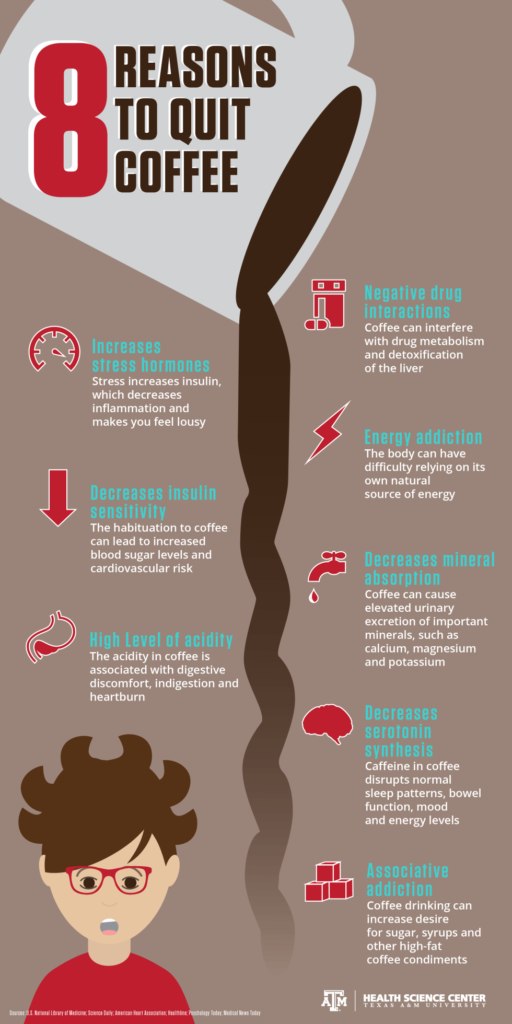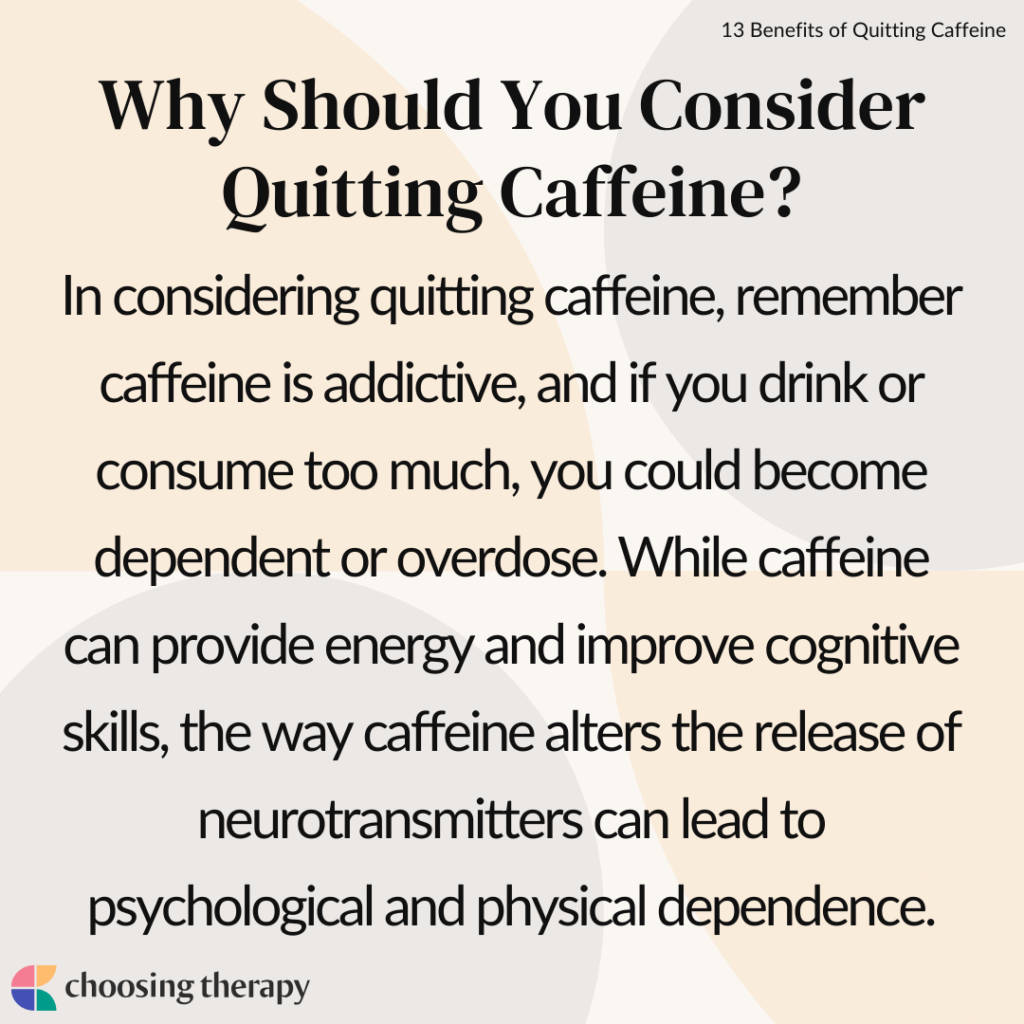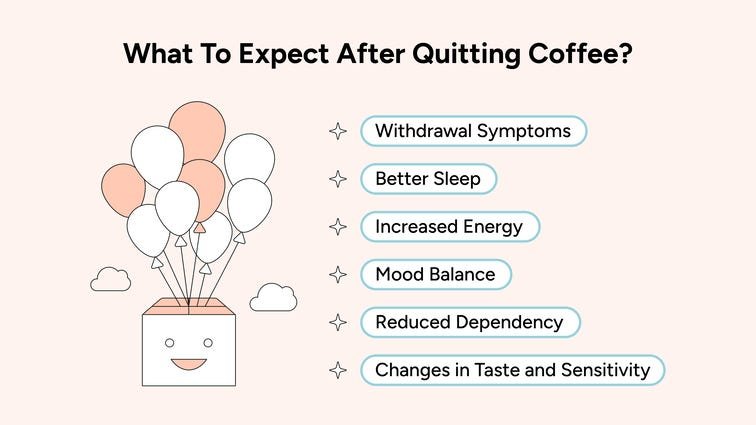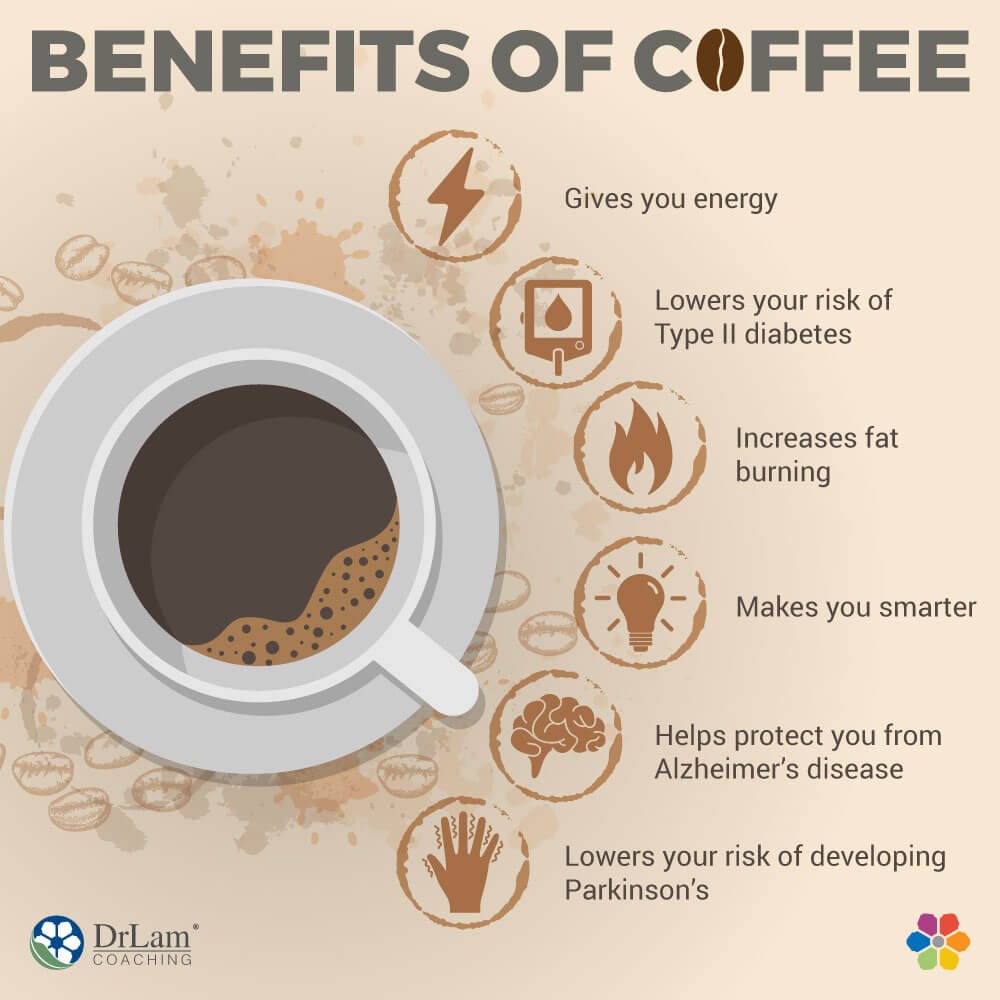Is quitting coffee good for you? If you’ve been pondering this question, you’re not alone. Many people rely on their daily cup of joe to kick-start their mornings, but there’s growing evidence suggesting that cutting back—or even eliminating—coffee from your diet can provide a myriad of health benefits. If you’ve ever wondered whether quitting coffee might be advantageous for your well-being, you’ve come to the right place. Let’s uncover the benefits of ditching that caffeine crutch.

Improved Sleep Quality
Say Goodbye to Insomnia
One of the most immediate benefits you’ll notice when you quit coffee is an improvement in your sleep quality. Caffeine is a well-known stimulant that can disrupt your sleep patterns, especially if you consume it in the afternoon or evening. By removing coffee from your daily routine, you’re less likely to struggle with insomnia or disrupted sleep cycles.
Longer Sleep Duration
Beyond just improving the quality of your sleep, quitting coffee can also help you sleep longer. Caffeine has a half-life of about 5 hours, meaning it can stay in your bloodstream for an extended period. This long-lasting effect can interfere with your ability to fall asleep and stay asleep through the night. By eliminating caffeine, you make it easier for your body to get the full eight hours of restorative sleep it needs.
Reduced Anxiety Levels
Lower Cortisol Production
Coffee can increase the levels of cortisol—the stress hormone—in your body. Elevated cortisol can lead to a range of problems, including heightened anxiety and stress. Lowering your caffeine intake can help moderate cortisol levels, making you feel more calm and relaxed throughout the day.
Less Jitters and Shakiness
If you’ve ever consumed too much coffee, you’re probably familiar with the jittery feeling it can produce. These physical manifestations of anxiety can be reduced significantly when you quit coffee, helping you feel more at ease and centered.
Better Digestion
Reduced Acid Reflux
Coffee is highly acidic, which can exacerbate conditions like acid reflux or GERD (Gastroesophageal Reflux Disease). If you frequently suffer from heartburn or indigestion, cutting coffee from your diet can alleviate these symptoms and promote better digestive health.
Improved Gut Health
Caffeine can also disrupt the balance of your gut flora. A healthy gut is vital for overall well-being, as it influences everything from your immune system to your mental health. By quitting coffee, you create a more hospitable environment for beneficial bacteria, thereby improving your gut health.
Healthier Skin
Reduced Inflammation
Caffeine and the various compounds in coffee can lead to inflammation, which in turn can cause skin problems like acne and redness. Reducing or eliminating coffee can decrease inflammation, leading to clearer, healthier skin.
Better Hydration
Caffeine is a diuretic, meaning it increases the amount of water you excrete. Dehydration can lead to dry skin, wrinkles, and a dull complexion. When you quit coffee, your body becomes better hydrated, which can improve the elasticity and overall appearance of your skin.

Improved Nutrient Absorption
Better Iron Levels
Coffee contains compounds called tannins, which can inhibit the absorption of essential nutrients like iron. If you’re someone who is already battling an iron deficiency, quitting coffee can improve your body’s ability to absorb this vital nutrient.
Enhanced Vitamin Absorption
Similarly, coffee can interfere with the absorption of other essential vitamins and minerals, such as calcium, magnesium, and B vitamins. Removing coffee from your diet can help ensure you get the full benefit of the nutrients in your food, contributing to better overall health.
Weight Management
Reduced Caloric Intake
Many coffee drinks, especially those available at popular coffee chains, are laden with sugar, cream, and other high-calorie additives. By cutting out these beverages, you can significantly reduce your daily caloric intake, aiding in weight management.
Better Appetite Control
Caffeine is an appetite suppressant, but its effect can be somewhat misleading. Once the caffeine wears off, you might find yourself feeling hungrier than before and craving unhealthy foods. Quitting coffee can help you maintain more stable hunger levels, making it easier to stick to a nutritious diet.

Stable Energy Levels
No Caffeine Crashes
While caffeine can provide a quick energy boost, it often leads to a crash later in the day, leaving you feeling more tired than before. By quitting coffee, you avoid these peaks and valleys in your energy levels, making it easier to sustain steady energy throughout the day.
Natural Energy Boost
Without relying on caffeine, your body learns to generate energy more naturally. You might find that your energy levels become more consistent, and you can rely on them more reliably without the artificial spike that comes from coffee.
Reduced Dependency
Breaking the Addiction
Caffeine is an addictive substance, and most coffee drinkers experience withdrawal symptoms like headaches, irritability, and fatigue when they try to quit. By eliminating coffee, you break this cycle of dependency and regain control over your daily habits.
Empowerment
Quitting coffee can also be an empowering experience. It demonstrates your ability to make conscious choices about your health and well-being, fostering a sense of accomplishment and self-control.

Enhanced Mental Clarity
Reduced Brain Fog
While coffee can initially make you feel more alert, it often leads to brain fog later in the day as the caffeine wears off. Without the ups and downs associated with caffeine, many people experience improved mental clarity and focus.
Better Concentration
Finally, quitting coffee can enhance your ability to concentrate. Instead of being reliant on caffeine for a short burst of focus, you’ll develop more consistent cognitive abilities that can improve your productivity and overall mental performance.
Longevity Benefits
Lower Risk of Cardiovascular Diseases
Excessive coffee consumption has been linked to increased risk for cardiovascular diseases such as hypertension and arrhythmias. By quitting coffee, you reduce these risks, contributing to a longer, healthier life.
| Risk Factor | Effect of Quitting Coffee |
|---|---|
| Blood Pressure | Lowered |
| Heart Rate | Reduced Risk of Arrhythmias |
| Cholesterol Levels | Potential Improvement if coupled with healthier dietary choices |
Reduced Cancer Risk
Studies have shown that high levels of coffee consumption may be linked to certain types of cancers, such as bladder and esophageal cancer. While moderate consumption is generally considered safe, quitting can reduce even those minimal risks, providing peace of mind.

Herbal Alternatives
Rooibos Tea
If you’re looking to replace the ritual of your morning coffee, rooibos tea is a fantastic alternative. Naturally free from caffeine and rich in antioxidants, it offers a calming yet invigorating experience.
Chamomile Tea
Chamomile is another excellent alternative, known for its soothing properties. It can serve as a great way to wind down in the evening or to replace your afternoon coffee.
Emotional Well-being
Increased Mindfulness
Without the dependency on caffeine, you may find yourself more mindful and in tune with your body’s natural rhythms. This can lead to increased emotional well-being and a better understanding of what your body needs.
Mood Stability
Caffeine can cause mood swings due to its stimulant nature. Removing it from your diet can help stabilize your mood, making you feel more balanced and emotionally robust.
Practical Tips for Quitting Coffee
Gradual Reduction
Going cold turkey can be tough, especially if you’re a heavy coffee drinker. Gradually reduce your intake to minimize withdrawal symptoms. Start by cutting down one cup per day until you’re entirely off coffee.
Stay Hydrated
Drinking plenty of water can help mitigate some of the withdrawal symptoms like headaches and irritability. Hydration also aids in flushing out toxins, helping you feel better overall.
Get Plenty of Rest
Ensure you’re allowing your body to catch up on rest. The first few days of quitting coffee might leave you feeling more tired than usual, so give yourself the grace to take extra naps or go to bed earlier.
Conclusion
Quitting coffee isn’t just about giving up your favorite morning ritual. It’s a choice that can bring numerous benefits for your physical, mental, and emotional well-being. By improving your sleep, reducing anxiety, aiding digestion, enhancing skin health, and contributing to better nutrient absorption, quitting coffee sets you on a path towards a healthier, more balanced life. Not only can it help with weight management, stable energy levels, and reducing dependency, but it can also provide substantial long-term benefits like lowering risks of cardiovascular diseases and certain cancers. So, if you’ve been contemplating quitting coffee, the myriad of health benefits might just be the motivation you need to make the switch.
